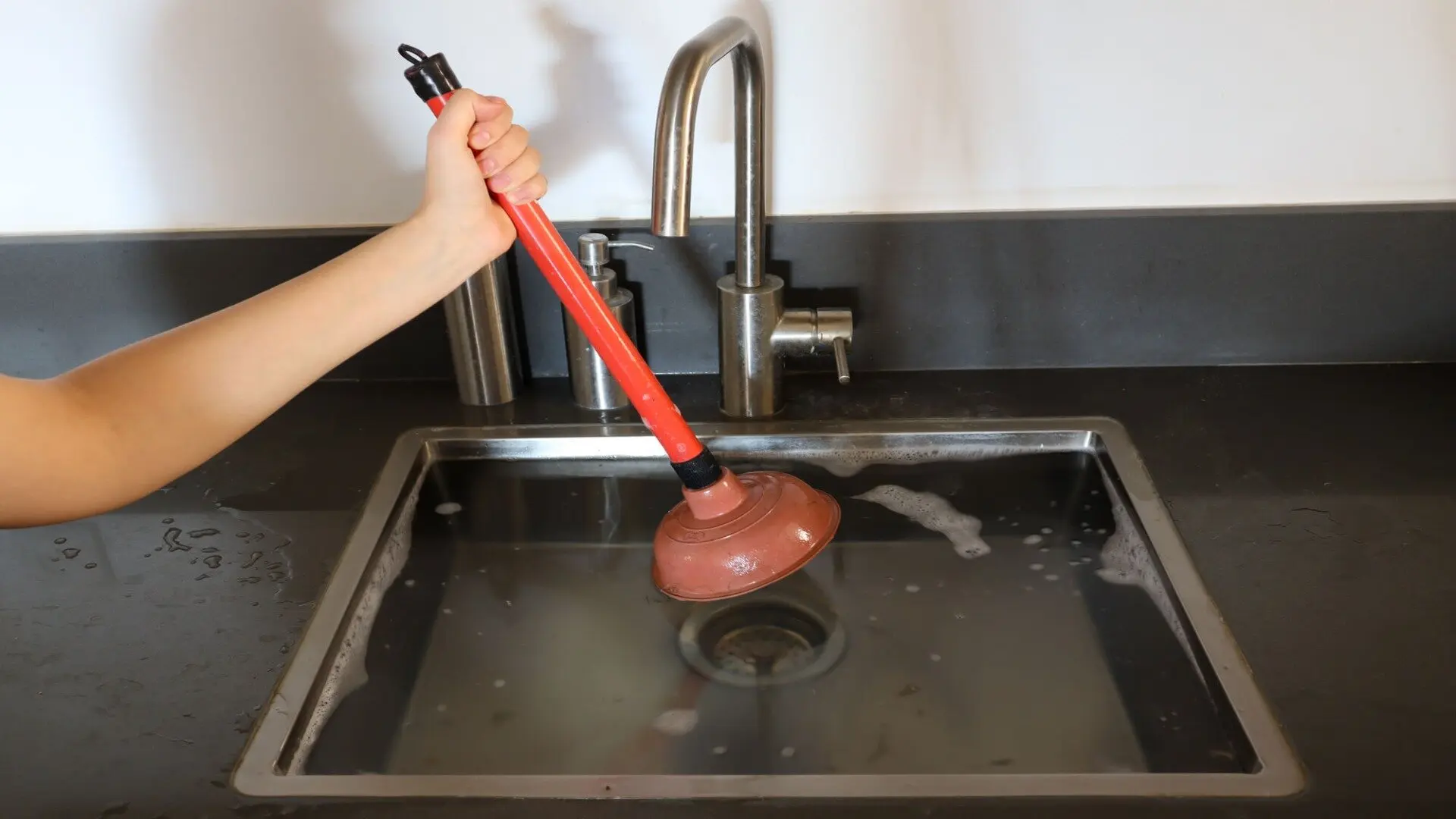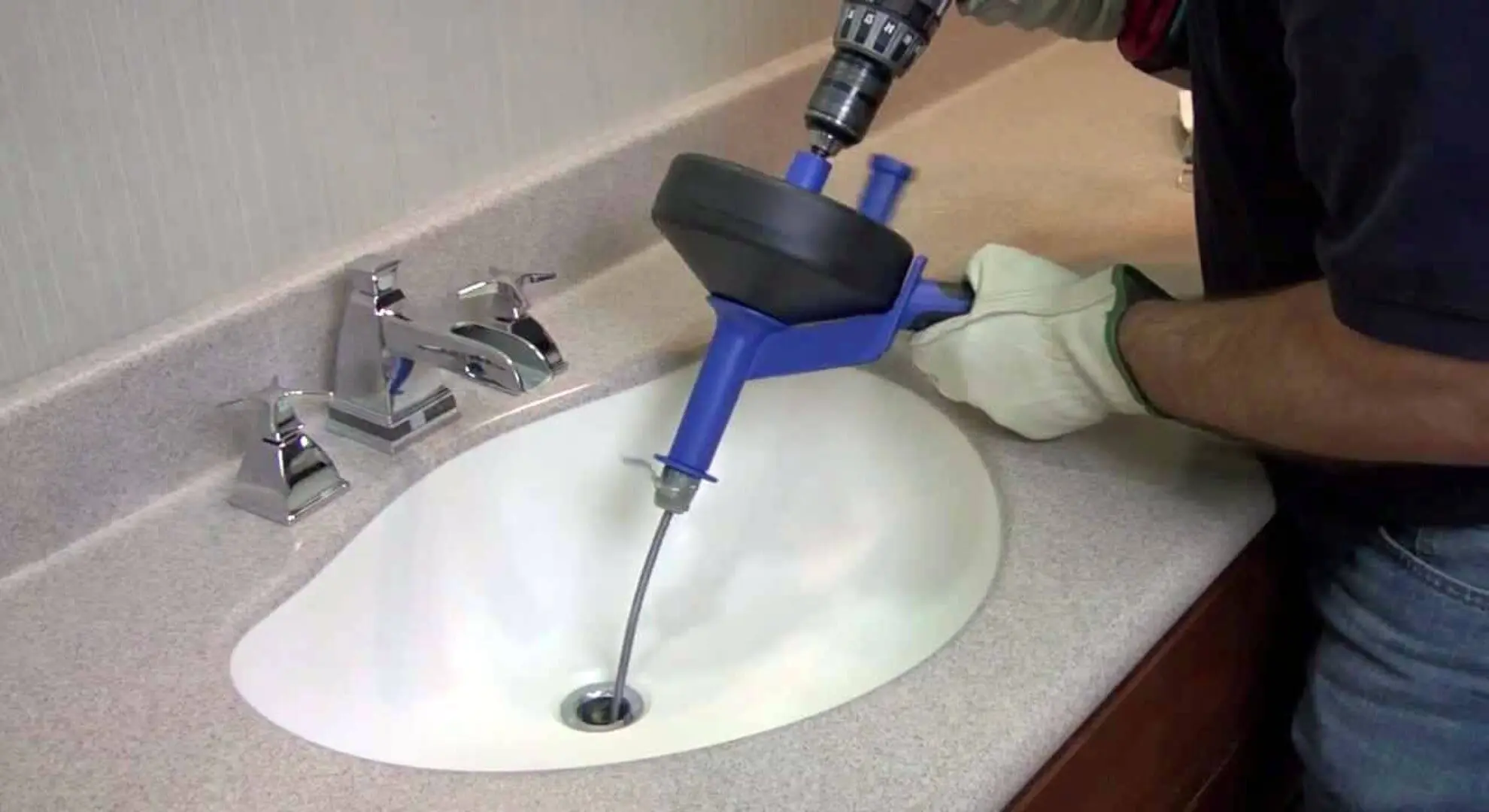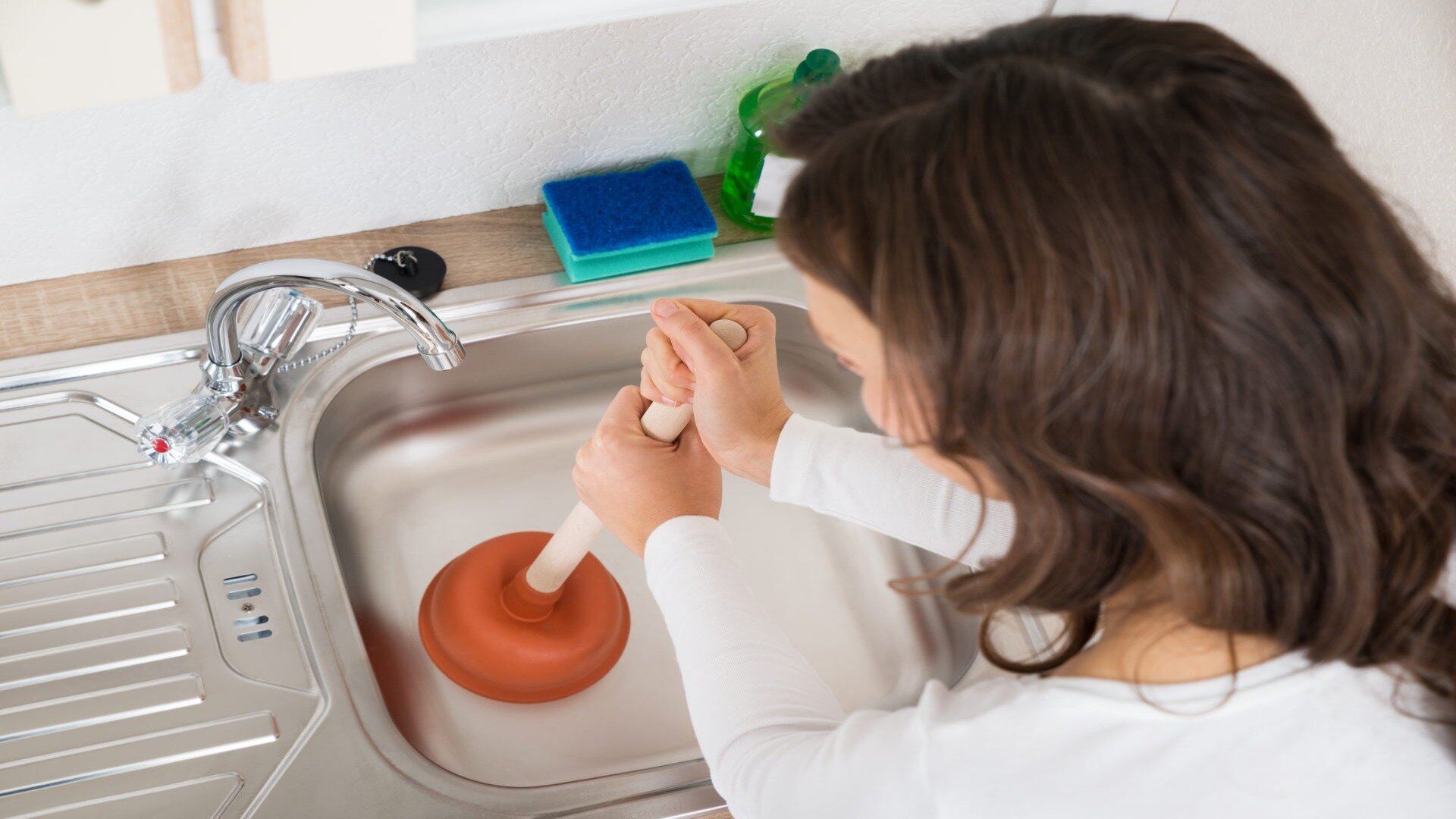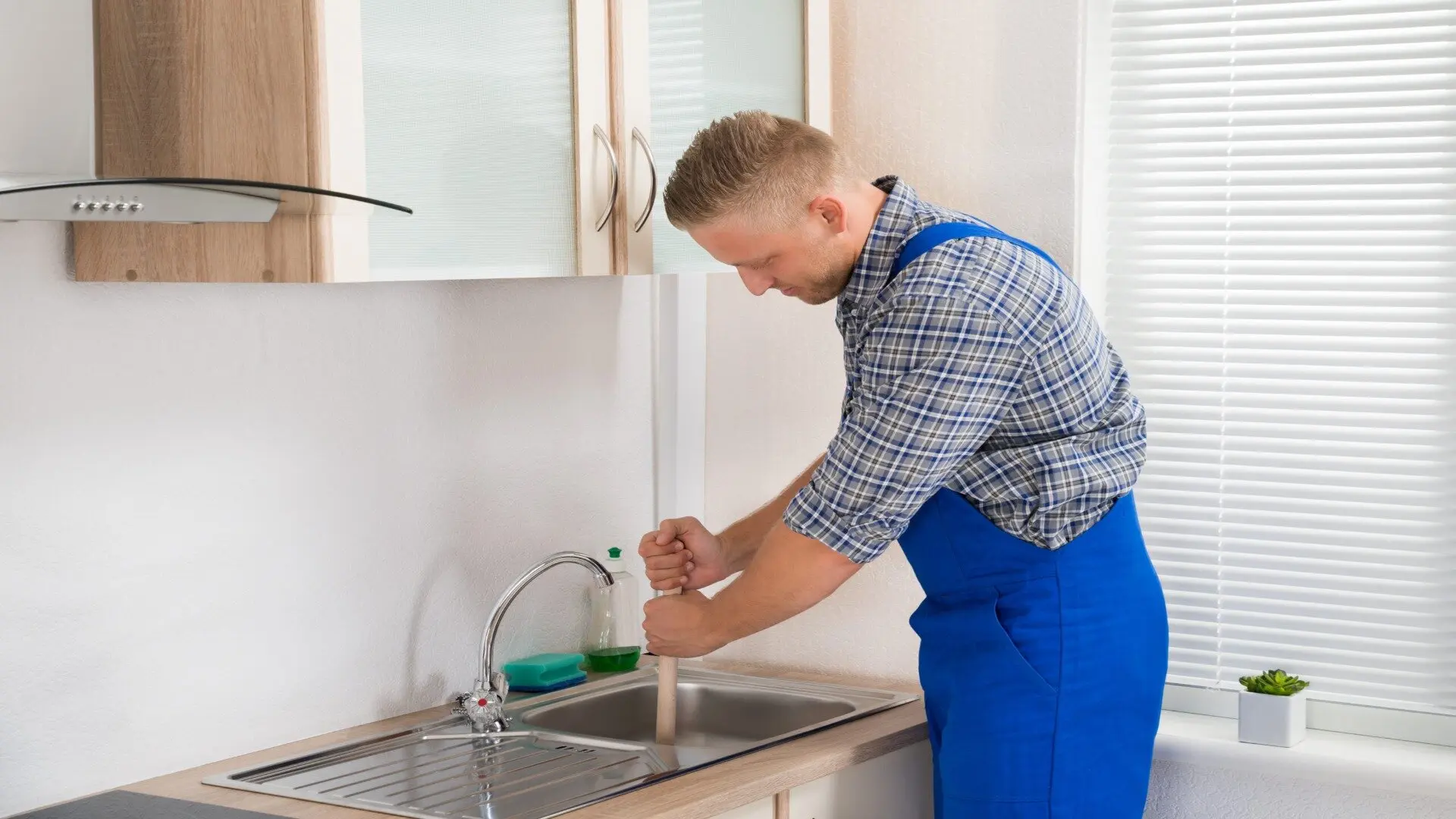
It’s one of the most frustrating household headaches - you’re peacefully washing dishes or brushing your teeth when suddenly the water backs up and your sink becomes clogged. A blocked kitchen or bathroom sink can quickly disrupt your routine and leave you wondering about what’s causing the backup.
If you find yourself frequently dealing with slow-draining or fully-clogged sink drains, you’re not alone. Many homeowners struggle to keep their sinks free-flowing and functioning properly over time. The good news is that fixing a stubborn sink blockage is often easier than you think.
In this guide, we’ll explore the usual suspects behind sink blockages. We’ll break down how grease, hair, and other pesky debris build up to cause those annoying clogs.
We’ll also explore simple solutions for clearing a clogged sink on your own and tips for preventing future problems. Read on to unlock the secrets to a blockage-free sink and restore free-flowing drains in your kitchen and bathrooms.
Why Does My Sink Keep Blocking?
There are a few common reasons bathroom and kitchen sinks get clogged repeatedly. The build-up of hair, soap scum, and food debris (even if you have a garbage disposal) is a major culprit, as these materials can get tangled and stuck in pipes over time. Keeping food scraps out of your pipes is the best way to stop kitchen drain blockages before they happen.

Pouring fats, oils, and grease down the drain also leads to thick blockages as they cool and congeal. Old pipes that have accumulated mineral deposits or become corroded can impede drainage systems and cause backups.
Overusing chemical drain cleaners might harm your pipes and actually create more blockages. Intruding roots or tree debris can also cause repeat issues in exterior vent pipes. Regular care and knowing the dos and don'ts can keep those bothersome clogs at bay.
Clearing a Blocked Sink Drain
When faced with a stubbornly clogged sink, you can try several DIY methods before calling a professional plumber. Simple tools like plungers, baking soda, vinegar, and wire snakes can often break up blockages and keep your drains flowing freely.
Using a Plunger
Plunging is usually your first weapon in the battle against a blocked sink. Start by filling the sink halfway with water and sealing the overflow hole with a wet rag. Then, give it a good plunge up and down over the drain. This can help break up the blockage. Repeat a few times to see the best results. Plunging works great for clearing major clogs, but keep in mind it might not remove all the gunk stuck to pipe walls.
Baking Soda and Vinegar
For organic clogs like fat oils, hair, grease, and food, boiling water and baking soda can help break things down. Pour 1/2 cup baking soda down the drain, followed by 1/2 cup white vinegar. Cover the drain and let the fizzing reaction work for 10-15 minutes. Then flush with boiling water.

Unclogging with a Wire Snake
For deeper clogs, a wire snake or auger can reach down into the pipes and hook debris to pull it out. Slowly turn the handle as you feed the snake down the drain once you feel resistance, twist and work the clog-free. Rinse with hot water.
Removing the P-Trap
If all else fails, it’s time to get hands-on with the p-trap—the curved bit under the sink. Position a bucket underneath to catch any surprise spills, then unscrew it, give it a good clean, and pop it back on.
Preventing Future Sink Clogs
Once you’ve cleared blocked drains, it’s equally important to take steps to prevent future blockages. With some simple habits and sink maintenance, you can keep your drains free-flowing and eliminate recurring clog headaches.
Use a Drain Catcher
Fitting sink strainers or drain catchers over your drains prevents food scraps and hair from going down the clogged pipes. Empty and clean them regularly to keep debris from building up. Mesh styles are best for catching small particles.
Avoid Pouring Grease Down the Kitchen Sink Drain
Make sure to let cooked oils and grease cool down and solidify before tossing them in the bin. Get in the habit of scraping down plates and pans before washing to avoid any fats and oils from clinging on in the pipes.

Regularly Flush with Hot Water
Run very hot water down your sink for 1-2 minutes at least once a month. The heat helps dissolve grease and hair buildup. For really stubborn buildup, boil water on the stove and carefully pour it down. Remember to never pour boiling water into PVC pipes, which can damage them. Also, some dish soap can help lubricate the clog and break it apart. We recommend pouring a generous squirt of dish soap down the drain and following it up with hot water.
Use Natural Drain Cleaners
Avoid commercial drain cleaners, which can damage pipes. Instead, use a periodic mixture of vinegar and baking soda to deodorise and break up gunk.
Know What Not to Put Down the Drain Pipes
Coffee grounds, eggshells, pasta, rice, and vegetables can accumulate over time. Dispose of food waste in the trash instead of the drain pipe.
Keep Your Drains Free-Flowing
Blocked and slow-draining sinks don’t have to be a constant hassle. With a little know-how, you can often tackle a clogged kitchen sink all by yourself, without needing to call in the pros. By understanding what causes those blockages and mastering some DIY unblocking tricks, you can keep your sinks flowing freely. Simple preventative habits like using drain catchers and steering clear of grease buildup will also help keep clogs at bay.
Yet, if you’re stuck with a stubborn sink clog or a pesky plumbing issue that just won’t quit, it might be time to bring in the experts. The team at Fixed Today has tackled every sink blockage imaginable and can check out your drains to sort things out. Don’t put up with a continuously clogged sink—give Fixed Today a call to book a visit and get your sinks and drains back to peak condition.














